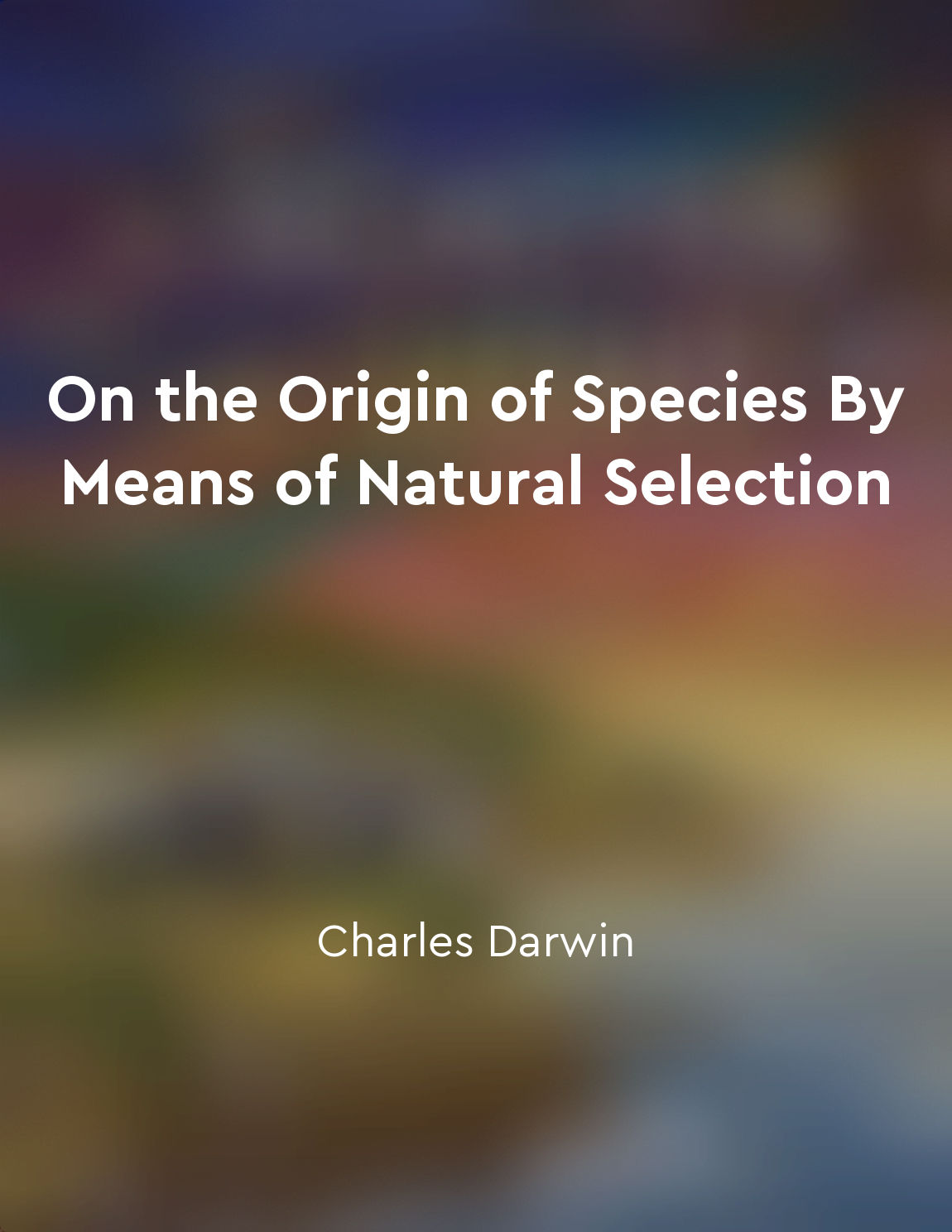Males and females have different reproductive strategies from "summary" of The Descent of Man by Charles Darwin
Darwin highlights the fundamental difference in reproductive strategies between males and females in the animal kingdom. This distinction, according to Darwin, is rooted in the inherent physiological and behavioral differences between the two sexes. Males, as Darwin explains, typically employ what he describes as "combat" or "rivalry" tactics to compete for access to females for mating. This often involves physical competition with other males, ranging from displays of strength and aggression to direct combat. The ultimate goal of such behavior is to secure mating opportunities and pass on one's genes to the next generation. Females, on the other hand, are more selective in choosing their mates. Darwin notes that females often prioritize traits such as strength, health, and resources in potential partners, as these qualities are seen as indicators of genetic fitness and the ability to provide for offspring. This selective behavior is driven by the need to ensure the survival and well-being of their offspring. Furthermore, Darwin observes that the investment of time and energy in reproduction differs between males and females. While males can potentially mate with multiple partners and produce numerous offspring, females have a limited number of eggs and must invest considerable resources in each offspring. This asymmetry in reproductive investment further shapes the strategies employed by each sex in the pursuit of reproductive success. In summary, Darwin's exploration of the differences in reproductive strategies between males and females underscores the complex interplay of biology, behavior, and evolutionary pressures in shaping the varied mating behaviors observed in the animal kingdom. Through his observations, Darwin provides valuable insight into the underlying mechanisms that drive sexual selection and the perpetuation of species.Similar Posts
The balance between cooperation and competition is essential for evolutionary success
The intricate dance of cooperation and competition is at the heart of evolutionary success. Organisms must work together toward...

Divergence of species through natural selection
The process of natural selection is a key mechanism by which species diverge over time. As individuals within a population vary...
Evolutionary psychology seeks to understand human behavior from an evolutionary perspective
Evolutionary psychology delves into the roots of human behavior, tracing its origins back to our evolutionary past. By examinin...

Adaptation to environment
The ability of living beings to adapt to their environment is a fundamental aspect of the natural world. This process of adapta...
The brain's reward system is involved in sexual pleasure
The brain's reward system plays a pivotal role in the experience of sexual pleasure. When we engage in sexual activity, our bra...

Women have sexual autonomy
In a society where power dynamics often favor men, the concept of women having sexual autonomy is revolutionary. This idea chal...
